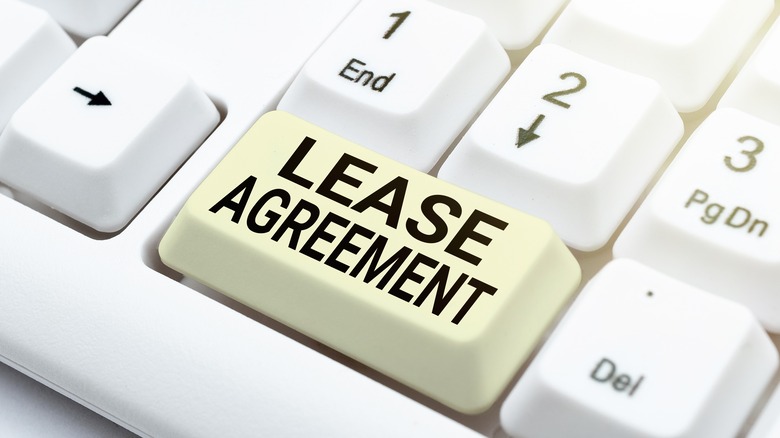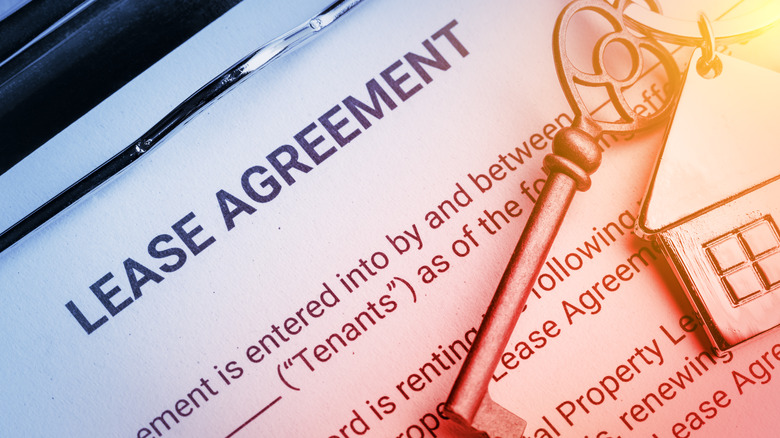5 Things You Should Know Before Subletting Your Space
Subletting can be a real lifesaver for a renter, but it can also open a Pandora's box of problems. The process of allowing someone to rent the space you've already committed to being responsible for is fairly straightforward on the surface. But in order to stack the odds in your favor as a renter, you will need to pay close attention to the details.
People sublet for a variety of reasons, from being called away for work to tending to a sick relative. Whatever your motive to sublet, the one constant that remains is the need to protect yourself and your property without violating the contract you are held to. Throughout 2020, roughly 2.9 million Americans relocated from cities, according to Pew Trusts. But not everyone who moved waited for their leases to end, and an untold number sublet without understanding how to do so while safeguarding their credit and property.
The Nest warns that there are many issues surrounding subletting. They recommend a thorough evaluation of the person getting the keys to avoid choosing someone untrustworthy and a contract that's clear and specific. Here are the five most important things to know before safely subletting a space.
Who's responsible
The first thing to know about subletting is that only the signatories of the original agreement are legally bound to the terms agreed upon with the landlord. Therefore, any separate agreement with a replacement should be as airtight as possible.
But before you start that process, conduct an internet search to learn about subletting where you live. As the experts at Property Do explain, the laws regulating renters vary from state to state. Some, like Utah and Nevada, simply say that the main tenant is allowed to sublet, while others provide more strict caveats.
Another piece of the puzzle is already in your possession: Examine your lease closely. To the extent that state and local laws do govern subletting, the particulars are typically left to the landlord. Landlord Studio suggests that the contract you create contains certain clauses to protect you and anyone else affected by the sublet process. For example, they advise requesting a security deposit from the new occupant. They also recommend that despite the fact that someone subletting might be closer, you should pay the landlord monthly, and the occupant should pay you.
Permission granted
Once you have permission to sublet, you can begin to assemble a list of responsibilities that you believe will guide your proxy to success as a reliable tenant. Tenant Resource Center explains that there are several things to consider. These include getting permission from any roommates that someone is leaving and someone else is arriving, setting the date of the lease terms, and navigating the logistical intricacies of how multiple roommates can be accommodated when one decides to leave before the lease ends.
In addition, there may be other specific details that need to be included in the contract, such as what may the new resident access and use in the home? Will you leave valuables and furniture behind? In effect, you're taking inventory of your own life and trying to have someone else step up to become the steward you were. You should also insist on proof of renter's insurance for this specific address, according to Trustage, since the new occupant will most likely not be covered by your policy.
Sublease/sublet
Because there's no one contract for subletting, the advisors at Contracts Counsel say that you can tailor yours to your particular needs. Therefore, it is important to make sure what you're constructing legally applies to both you and the signee. Many professionals believe the terms sublet and sublease are for the most part interchangeable. But others make important distinctions.
Subleases generally refer to agreements between yourself and the landlord, whereas sublets, which are sometimes referred to as relets, allow the new tenant to deal directly with the property manager or owner. It's tricky, so make sure you understand which party you are, and what kind of agreement you want to put into place. The pros at Property lawyers can assist you in sorting out your document needs.
If you're getting the impression you should have your agreement reviewed by an attorney, you're right. Many renters don't, but it's better to be safe than sorry, as a lawyer can help identify loopholes and important elements you may have overlooked. While there is no straight path to subletting the place you're renting, sites like Rocket Lawyer and Law Depot provide contract templates that you simply fill out and print.
Pros, cons
There are additional concerns if you're a homeowner subletting your house rather than a landlord renting an apartment. Since you'll be living elsewhere, it's important that you can charge enough to defray the costs associated with your new housing arrangements, while not gouging the incoming occupant.
You can look at current market conditions for an idea of what to charge, based on what's around and similar to the space you're offering. You'll also need to decide whose name will be on the utilities — if they stay in your name, you are responsible for ensuring they are paid in a timely manner. If they transfer to the new tenant, you may be jumping through hoops to get them back.
If roommates are involved, they can come in handy here. Chances are that you have some level of trust with at least one of them, and you can put the bills in their name. Doing so puts your good credit in the hands of someone you already know. My Smart Move also recommends you check a candidate's credit and criminal history as well. The idea is not to snoop. but to find out if the person you're signing a contract with is trustworthy. Clearly, a trail of bounced checks, missed payments, or worse present the reddest of flags.
Ideal candidates
Finally, don't rush to fill your space as it could end up costing you in the long run. In many ways, finding the right person to sublet can be the most difficult part of the entire journey. Dolly explains that your success in finding the right tenant improves when you pre-sort the kind of individuals you're looking for. You might start with sites like Craigslist and Nextdoor, which is a great way to search closer to where your property is already located.
It might be useful to use social media, too — especially if you're in a metropolitan area. Numerous Facebook pages exist solely to help renters and tenants find each other. Sooner or later, you'll find a pool of candidates worth vetting. You're looking for someone who demonstrates that they're responsible and reliable. Once you've settled on a few candidates, you'll want references. Personal references are all well and good, but ideally, those would be former landlords, roommates, or employers.





